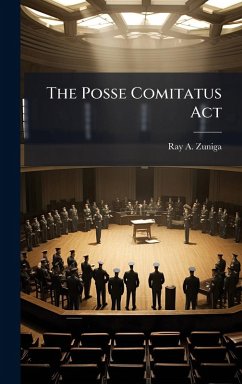The Posse Comitatus Act was passed at the end of the American Civil War Reconstruction period. Since its inception in 1878, the Act has consistently been misinterpreted. The most common misinterpretation of the law is the statute that prohibits the federal government from using most federal troops for law enforcement. The Act limits the Department of Defense in accomplishing Defense Support to Civil Authorities (DSCA) missions during times of natural or man-made disasters. The Posse Comitatus Act (PCA) needs to be repealed and a new Interagency Coordination Act needs to put in its place. The intent of this paper is to show that there is a problem with the Posse Comitatus in obstructing federal forces from responding to domestic crisis and mitigating relief from loss of life or property. This research intends to offer a solution on how to better use not only military forces but a whole of government approach to prevent, prepare, and respond to domestic national disasters by recommending new legislature be passed. This paper will first take a look at the history of domestic use of the federal forces by the American people. Then, a background on the environment during the post-Civil War Reconstruction Period will be made in an effort to understand what led to the passing of the PCA. A description and explanation of the statutes PCA and its implications will also be reviewed. Modern case studies of recent national disasters or incidents will be used as examples where federal forces could have been utilized more effectively but were hindered by the PCA. This paper will end with the recommendation to pass a new act that more effectively uses federal assets to respond to a crisis. This work has been selected by scholars as being culturally important, and is part of the knowledge base of civilization as we know it. This work was reproduced from the original artifact, and remains as true to the original work as possible. Therefore, you will see the original copyright references, library stamps (as most of these works have been housed in our most important libraries around the world), and other notations in the work. This work is in the public domain in the United States of America, and possibly other nations. Within the United States, you may freely copy and distribute this work, as no entity (individual or corporate) has a copyright on the body of the work. As a reproduction of a historical artifact, this work may contain missing or blurred pages, poor pictures, errant marks, etc. Scholars believe, and we concur, that this work is important enough to be preserved, reproduced, and made generally available to the public. We appreciate your support of the preservation process, and thank you for being an important part of keeping this knowledge alive and relevant.
Bitte wählen Sie Ihr Anliegen aus.
Rechnungen
Retourenschein anfordern
Bestellstatus
Storno

